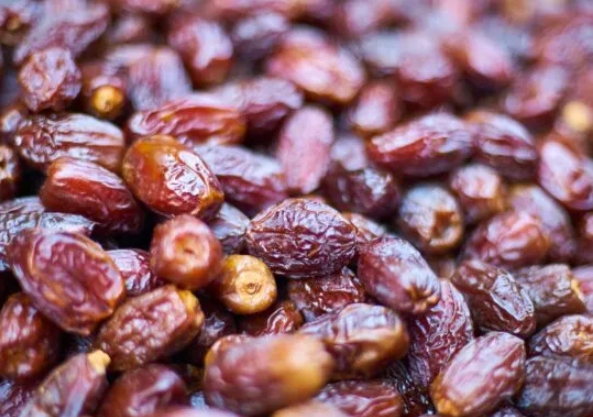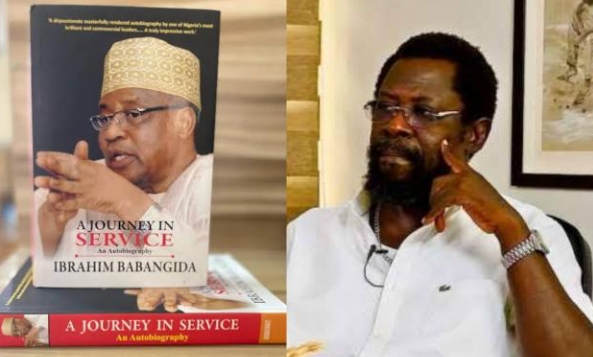News
FG, states, LGs shared N3.47tn in Q2 indicating an increase of N46.77bn— NEITI

By Mario Deepromoter
The Nigeria Extractive Industries Transparency Initiative has stated that the Federation Accounts Allocation Committee disbursed N3.473tn to the three tiers of government in the second quarter of 2024.
This reflects an increase of N46.77bn (1.42 per cent) compared to the first quarter of 2024, the agency stated in a statement on Monday.
The statement signed by its Assistant Director of Communications and Advocacy, Chris Ochonu, noted that these figures were part of NEITI’s latest Quarterly Report on Federation Account Revenue Allocations for Q2 2024.
Unveiling the report in Abuja, the NEITI Executive Secretary, Dr Ogbonnaya Orji, emphasised that “the quarterly review aims to highlight the sources of funds into the Federation Account and the factors affecting the growth or decline in revenues and distributions over time”.
“The ultimate goal of this disclosure is to enhance knowledge, increase awareness, and promote public accountability in the management of public finances,” Orji stated.
He said the Federal Government received N1.102tn, representing 33.35 per cent of the total allocation while 36 states received N1.337tn (40.47 per cent) and the 774 Local Government councils shared N864.98bn (26.18 per cent).
Additionally, nine oil-producing states received N169.26bn as their derivation share from mineral revenue.
“A comparison with the previous quarter shows that the Federal Government’s allocation decreased by N41.44bn (3.76 per cent), while state governments saw an increase of N58.13bn (4.29 per cent), and local government councils experienced a rise of N30.82bn (3.57 per cent).
“The Nigeria Upstream Petroleum Regulatory Commission, the Federal Inland Revenue Service, and the Nigeria Customs Service were identified as the main revenue-generating agencies for the Federation Account.
“Their contributions included oil and gas royalties, petroleum profit tax, company income tax, value-added tax, and import & excise duties,” the statement noted.
The report highlighted an upward trend in revenue allocations in the latter months of 2023 and early 2024. Total monthly disbursements increased from N1.094tn in January 2024 to N1.098tn in February but then declined slightly to N1.065tn in March.
On state-by-state allocations, Delta State received the largest share of allocations in Q2 2024, with a gross allocation of N137.36bn, including oil derivation. Lagos State followed with N123.28bn, and Rivers State came in third with N108.104bn. Nasarawa, Ebonyi, and Ekiti States received the least, with N24.735bn and N25.40bn, respectively.
Among local governments, Alimosho in Lagos State received the highest allocation at N5.72bn, followed by Ajeromi/Ifelodun (N4.59bn) and Kosofe (N4.54bn). Ifedayo received the smallest share of N661.82m.
“Nine states benefited from 13 per cent oil derivation revenue, with Delta State leading at 40.153 per cent, followed by Bayelsa (38.112 per cent) and Akwa Ibom (36.117 per cent). Rivers State recorded a derivation ratio of 27.272 per cent, while the other oil-producing states had ratios below 20 per cent.
“However, solid minerals-producing states did not receive derivation revenue in Q2 2024 due to insufficient revenue generation from the sector.”
Continuing, the NEITI boss stated that Bauchi State recorded the highest debt deductions in Q2 2024 at N6.49bn, followed by Ogun State. Anambra State had the least deductions at N115.6m, while Lagos and Nasarawa recorded no debt deductions for the quarter.
Making its recommendations, the NEITI urged states to take advantage of ongoing reforms in the solid minerals sector to diversify their revenue sources.
It added that “The Central Bank of Nigeria should strengthen measures to stabilize the exchange rate and reduce fluctuations in Federation Account remittances.
“States should adopt realistic budget benchmarks for oil production and exports to minimize fiscal shocks from price volatility.
“The Revenue Mobilisation Allocation and Fiscal Commission and the Office of the Accountant-General of the Federation should take decisive steps to increase transparency and accountability, particularly in the payment of special revenue accruals like derivation arrears and debt repayment refunds.”
The NEITI boss also urged the citizens and civil society organizations, particularly those involved in revenue and expenditure monitoring, to show interest and strengthen their capacity in budget tracking and monitoring of allocations and disbursements to all tiers of government.
News
Saudi Arabia donates 100 tonnes of dates to Nigeria as fasting approaches

By Kayode Sanni-Arewa
The Embassy of the Kingdom of Saudi Arabia in Abuja has held an official ceremony to distribute 100 tonnes (100,000kg) of dates to Nigeria as part of its annual humanitarian relief efforts.
The initiative, facilitated by the King Salman Humanitarian Aid and Relief Centre (KSrelief), aims to support vulnerable families across the country and strengthen the deep-rooted ties between the two nations.
During the ceremony, the Ambassador of the Custodian of the Two Holy Mosques to Nigeria, Faisal bin Ibrahim, conveyed the Kingdom’s dedication to humanitarian causes.
He expressed his profound gratitude to King Salman bin Abdulaziz and Crown Prince Mohammed bin Salman for their unwavering support in providing aid to Muslims and underserved communities worldwide.
He emphasised that Saudi Arabia remains steadfast in its commitment to fostering Islamic solidarity and providing relief to those in need.
Mr Al-Ghamdi explained that this year’s distribution includes 50 tonnes of dates for Abuja and another 50 tonnes for Kano, continuing Saudi Arabia’s tradition of assisting Nigeria through humanitarian donations.
He noted that the initiative represents the Kingdom’s broader mission to uplift Muslim communities, alleviate suffering, and promote unity, particularly during significant religious periods such as Ramadan.
The embassy, in collaboration with local authorities and humanitarian organisations, will ensure the proper distribution of the dates so that they reach the most vulnerable families in various regions of Nigeria
Saudi Arabia has been a longstanding partner in providing humanitarian aid to nations across the globe, including Nigeria. The Kingdom’s continued efforts in supporting food security and welfare initiatives exemplify its role as a global leader in charitable and humanitarian endeavours.
Through Vision 2030, Saudi Arabia seeks to expand its contributions to international humanitarian causes, reinforcing its dedication to fostering peace, stability, and prosperity worldwide. The ongoing provision of aid to Nigeria is a testament to these commitments and highlights the decades-long partnership between the two brotherly nations.
News
Babangida’s Book is filled with distorted facts, collection of lies, says Dele Farotimi

By Kayode Sanni-Arewa
Dele Farotimi, a human rights lawyer, has launched a heavy attack on former dictator Gen. Ibrahim Babangida (retd.), describing his reign as “ruinous”.
Farotimi, who lived through Babangida’s rule, recounted his experiences as a participant in the fight against the former leader’s “evil actions and inactions
Farotimi’s comments come after Babangida’s recent admission that Chief M.K.O. Abiola won the 1993 presidential election, which Babangida annulled.
The human rights lawyer expressed his disappointment, but not surprise, at the “mixed bag of lies, half-truths, urban legends, and obfuscations” in Babangida’s recent statements.
Farotimi’s criticism is not isolated, as many Nigerians have questioned Babangida’s legacy and the lack of consequences for his actions. The annulment of the 1993 election led to widespread protests and a prolonged struggle for democracy in Nigeria.
In a statement, Farotimi concluded, “No hagiographic allocutus can redeem the Evil Genius of Minna”.
The statement was shared on X while he was reacting to a comment made by Adnan Abdullahi Adam, which stated that “it’s better to read every side of exposition before forming your own judgement”.
With the cover picture of the IBB’s memoir “A Journey In Service” @realadnantweet wrote:
“I think IBB’s memoir: “A Journey in Service” exposes a fresh perspective on everything.
“It’s better to read every side of exposition before forming your own judgement.
“Everyone should try reading the book as jury to the plea of the accused.”
Responding Farotimi wrote: “I lived through his ruinous reign. I wasn’t a passive victim of his evil actions and inactions, I was a participant in the fight to be freed of him.
“I am painfully aware of the extent of his evil capabilities, and I have not been disappointed by the mixed bag of lies, half truths, urban legends, and obfuscations contained in the excerpts already in the public domain. No hagiographic allocutus can redeem the Evil Genius of Minna.”
On Thursday, February 20, 2025, former Nigerian military ruler General Ibrahim Badamasi Babangida (IBB) released his long-anticipated autobiography, “A Journey in Service.”
The memoir has ignited a firestorm of controversy, with critics accusing Babangida of distorting historical events and maligning deceased individuals who cannot defend themselves.
This development has reopened debates about his tenure and its lasting impact on Nigeria’s political and economic landscape.
Babangida’s tenure from 1985 to 1993 was marked by the implementation of the Structural Adjustment Programme (SAP), among others. In “A Journey in Service,” he provides an insider’s perspective on the adoption of SAP, aiming to offer context for the controversial policy that aimed to liberalize Nigeria’s economy.
While intended to address economic challenges, SAP led to widespread protests and debates due to its harsh austerity measures and the social hardships it imposed.
Critics, however, contend that Babangida’s memoir serves as a self-exoneration tool, selectively presenting events to absolve himself of blame.
Human rights lawyer and former Chairman of the Nigerian Human Rights Commission, Prof. Chidi Odinkalu, described the book as a “pack of lies,” accusing Babangida of making allegations against deceased individuals who cannot contest his claims.
Odinkalu further criticized Babangida for portraying himself as a victim of circumstances orchestrated by those who are no longer alive to defend themselves.
The memoir has also rekindled discussions about Babangida’s annulment of the June 12, 1993, presidential election, widely regarded as one of Nigeria’s freest and fairest elections. In the book, Babangida attempts to justify the annulment, a move that plunged the nation into political turmoil and prolonged military rule. Many Nigerians view this action as a significant setback to the country’s democratic progress.
News
Saudi Arabia plans to invest $600bn in new US trade over 4 years

By Kayode Sanni-Arewa
Saudi Arabian Crown Prince Mohammed bin Salman told President Donald Trump that the kingdom wants to put $600 billion into expanded investment and trade with the United States over the next four years, the Saudi State news agency said early on Thursday.
In a phone call between the two leaders, the crown prince said the Trump administration’s expected reforms could create “unprecedented economic prosperity”, the state news agency reported.
The report said Saudi Arabia wants its investments to capitalize on these conditions. It did not detail the source of the $600 billion, whether it would be public or private spending nor how the money would be deployed.
The investment “could increase further if additional opportunities arise”, the agency quoted Bin Salman as telling Trump.
Trump fostered close ties with Gulf states including Saudi Arabia during his first term. The country invested $2 billion in a firm formed by Jared Kushner, Trump’s son-in-law and former aide, after Trump left office.
Trump said following his inauguration on Monday that he would consider making Saudi Arabia his first destination for a foreign visit if Riyadh agreed to buy $500 billion worth of American products, similar to what he did in his first term.
“I did it with Saudi Arabia last time because they agreed to buy $450 billion worth of our product. I said I’ll do it but you have to buy American product, and they agreed to do that,” Trump said, referring to his 2017 visit to the Gulf kingdom.
The Reuters Daily Briefing newsletter provides all the news you need to start your day. Sign up here.
Reporting by Hatem Maher; Editing by Leslie Adler and Cynthia Osterman
-

 Metro18 hours ago
Metro18 hours agoInsecurity! Gunmen invade church, slash pastor’s 2 fingers
-

 Metro18 hours ago
Metro18 hours agoFire engulfs MTN office in Oyo
-

 Foreign18 hours ago
Foreign18 hours agoPentagon set to sack 5400 staff as attack hits Trump’s downsizing plan
-

 Metro18 hours ago
Metro18 hours agoDanger averted as police rescued six kids from collapsed building
-

 News17 hours ago
News17 hours agoNSCDC, Tantita intensify joint efforts to combat oil theft in Niger Delta
-

 Sports18 hours ago
Sports18 hours agoEnd of road for Arsenal, may not win any shield this season – Report
-

 Sports18 hours ago
Sports18 hours agoAtalanta coach makes a U-turn says he never knew his comment could offend Lookman
-

 News11 hours ago
News11 hours agoThai lady arrested at Lagos airport with boxes of illicit drug consignments







